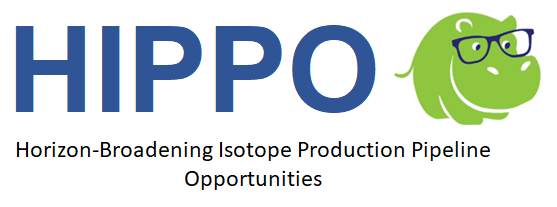What is a HIPPO Campus?
HIPPO Campuses are weeklong horizon-broadening opportunities in isotope production and isotope science, which will take place at various participating institutions during the summer. These workshops will be in person with virtual options available. Space is limited; however, each HIPPO student will be able to attend at least one workshop. Travel expenses will be covered for those students selected to attend each HIPPO Campus.
Campus at Texas A&M University (week of July 28): Targetry for Isotope Production
Field experts will come to TAMU to lead this exciting hands-on workshop on the importance of targetry for isotope production. Students will make, bombard, and analyze their own targets as a part of this HIPPOcampus.
Pictures from the 2024 campus
Campus at University of Utah (week of July 28): Nuclear Fission Reactors
The HIPPO Campus held at the University of Utah will focus on radionuclide production. The University of Utah houses a 100 kW TRIGA reactor and 2 PETtrace cyclotrons that will be utilized for these efforts. Students will learn about how reactors and cyclotrons work, nuclear reactions, flux measurements, theoretical and measured production yields, gamma spectroscopy, and important considerations for the production of radionuclides of interest for medical applications. Students will get to work in the reactor facility in addition to receiving hands on experience with various radioanalytical equipment and techniques relevant to isotope production.
Campus at University of Alabama-Birmingham (week of July 28): University Isotope Production
Faculty (Lapi/Burns) will host undergraduate and graduate students and provide an immersive experience with hands-on activities with cyclotron targetry using the TR24 cyclotron as well as downstream purification and analysis techniques. Students will also interact with current group members including undergraduates, graduate students, staff scientists, radiopharmacists and other collaborating faculty members. Trainees will also be exposed to concepts related to the production of isotopes for small animal imaging and for human use radiopharmaceuticals.
Campus at University of Wisconsin (not available in 2025): University Isotope Production
The week-long experience at the University of Wisconsin will combine laboratory-based instruction with lectures and demonstrations of isotope science. Each day will include opportunities for community and network development, experience broadening, and social activities as unstructured activities unique to Madison. Days will share a common format, with the morning devoted to presentation, explanation, and discussion of the day’s planned activities, followed by the beginning of structured experimental efforts before lunch, a private “working-lunch” style gathering with a research presentation from a member of the local UW graduate student or postdoc group. After lunch, students will complete the day’s laboratory work before ending the day with a 1-hour debrief and invited guest lecture. On Day 1, laboratory work will focus on cyclotron irradiations and radiometric characterization of activated materials. Day 2 will focus on radiochemical processing of irradiated targets through a nuclear chemical separation, and quality control assessment of the resulting purified radionuclide. Day 3 will focus on radiolabeling, purifying, and application of radiopharmaceuticals. Day 4 will include tours of University of Wisconsin facilities including the UW Nuclear Reactor at the Max Carbon Radiation Science Center and the Wisconsin Institutes of Discovery Fabrication Laboratory.
Pictures from the 2023 campus
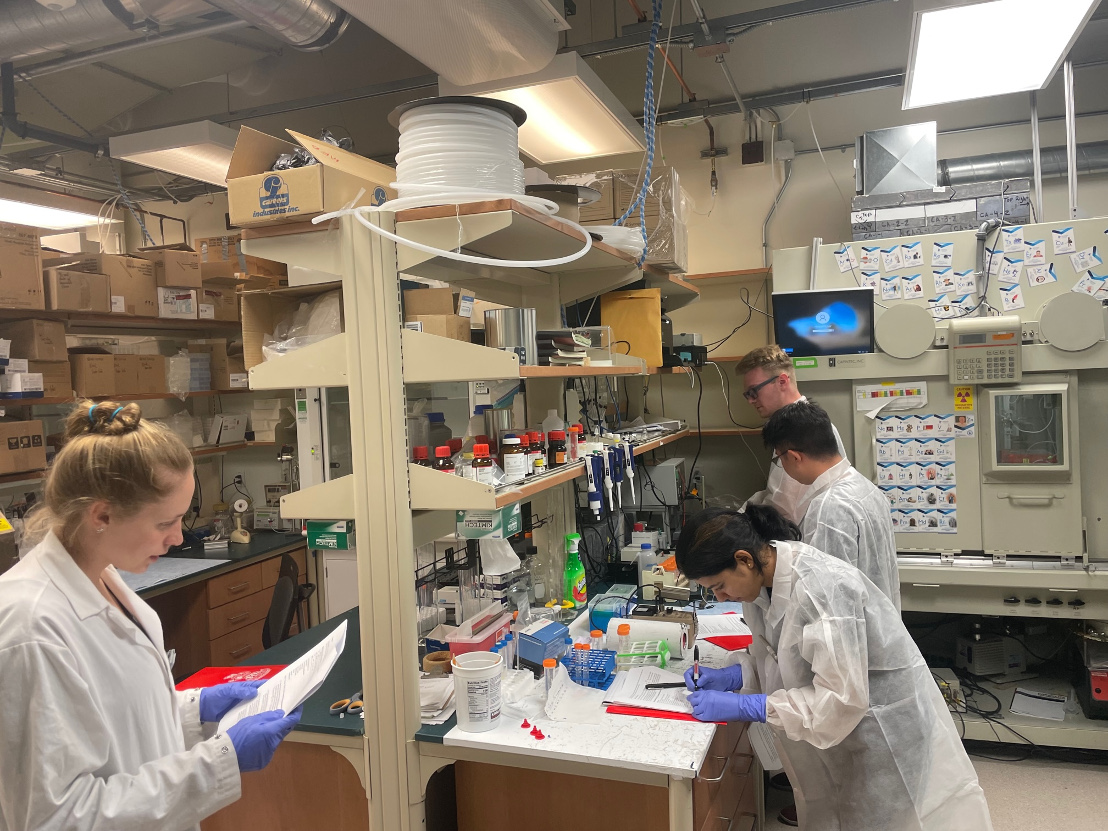
HIPPOCampus teaching assistant and participants preparing for radiochemical separations in the UW-M radiochemistry lab. From left: Taylor Johnson (UW-M), Shefali (UAB), Aidan Bender (UU), and Hong Beom Lee (UW-M)
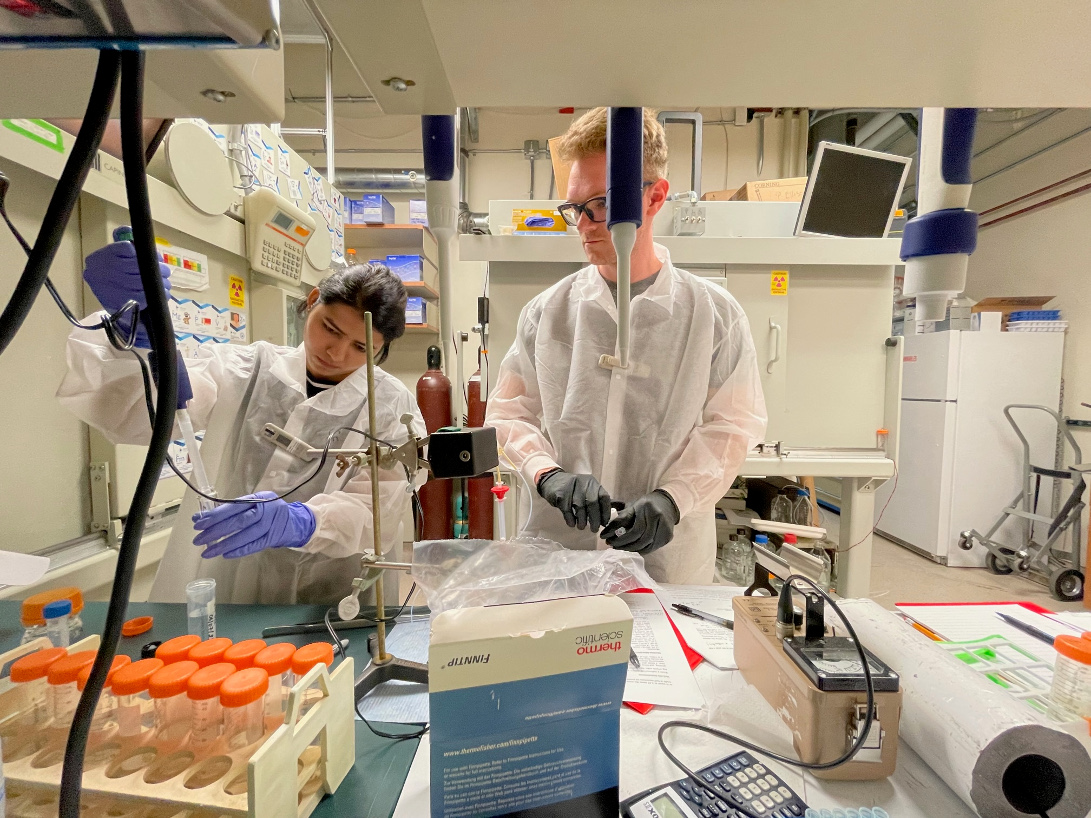
HIPPOCampus participants preconditioning an extraction chromatography column for radiochemical separations in the UW-M radiochemistry lab. From left: Shefali (UAB) and Aidan Bender (UU).
3 / 3
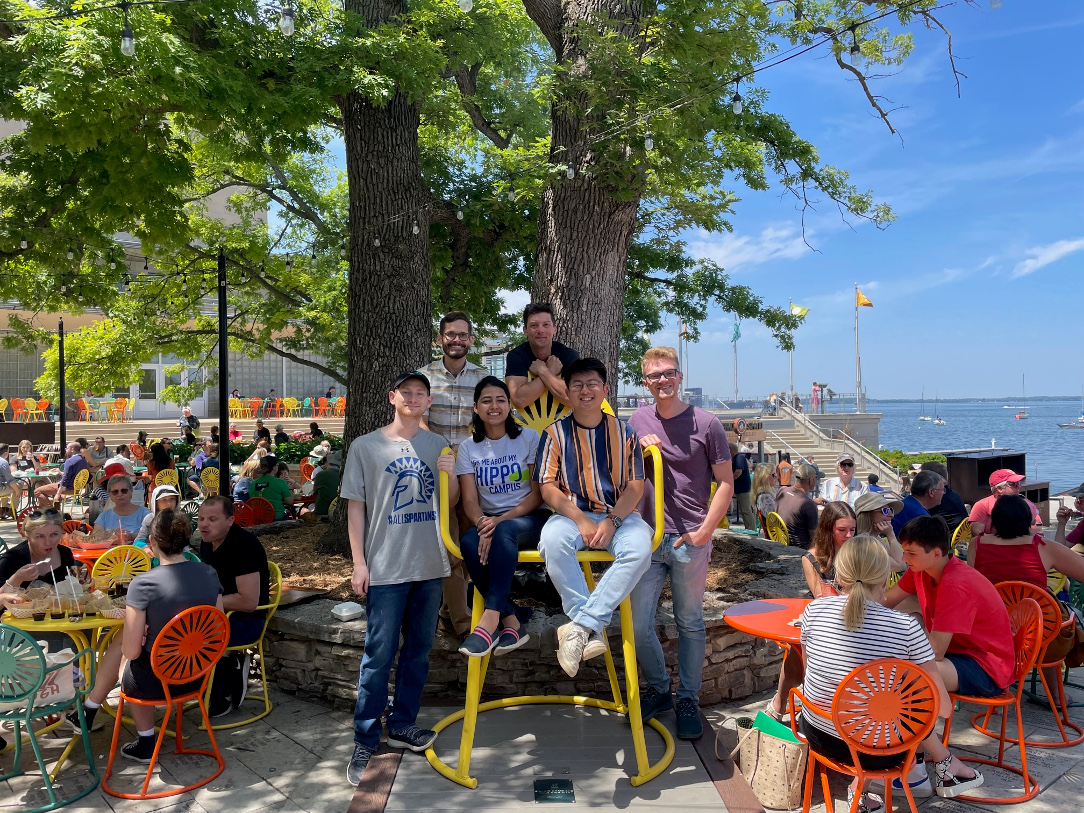
UW-M HIPPOCampus participants and faculty at the Memorial Union Terrace after the isotope production and applications career question and answer session. From left: Erick Brady (SJSU), Paul Ellison (UW-M), Shefali (UAB), Jonathan Engle (UW-M), Hong Beom Lee (UW-M), and Aidan Bender (UU).
❮
❯
Pictures from the 2022 campus
1 / 5
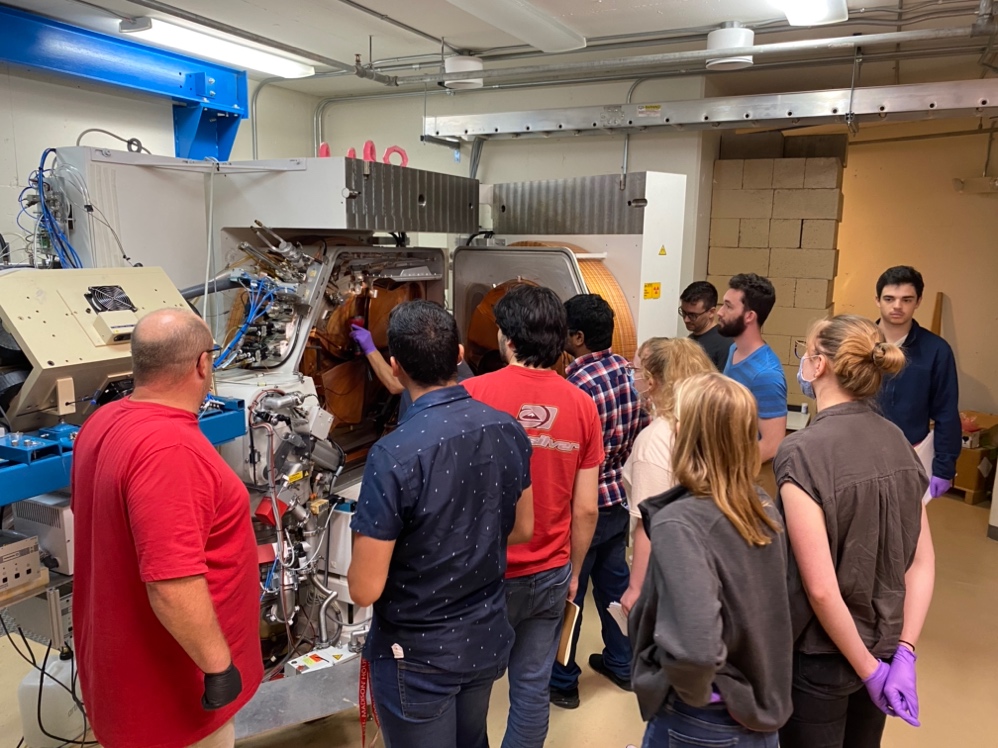
2 / 5
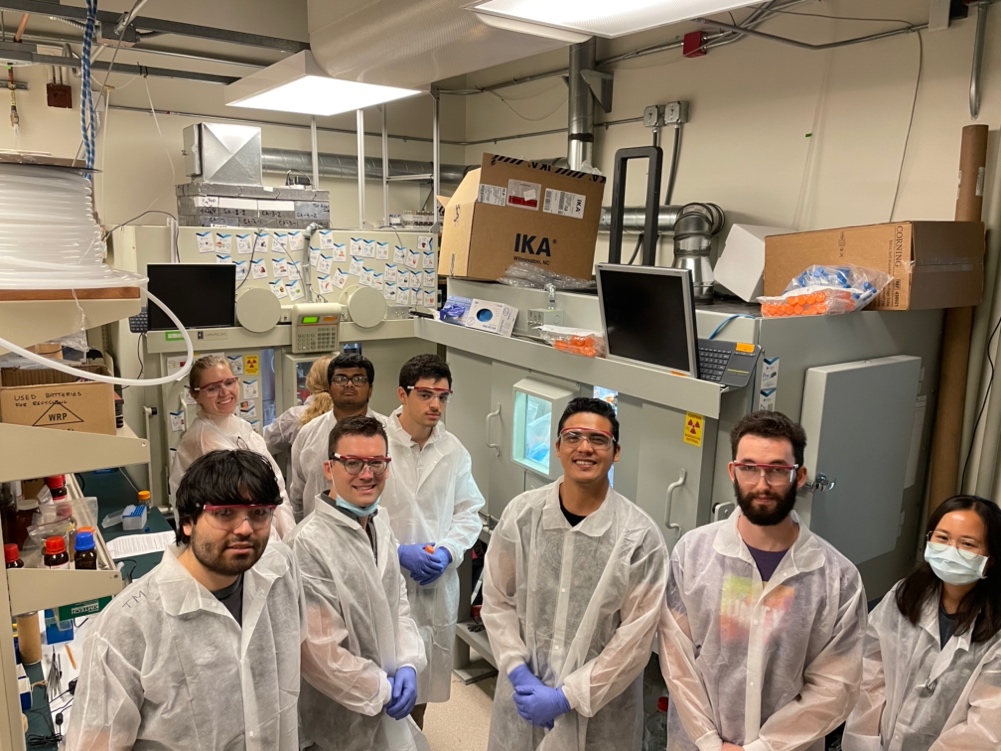
3 / 5
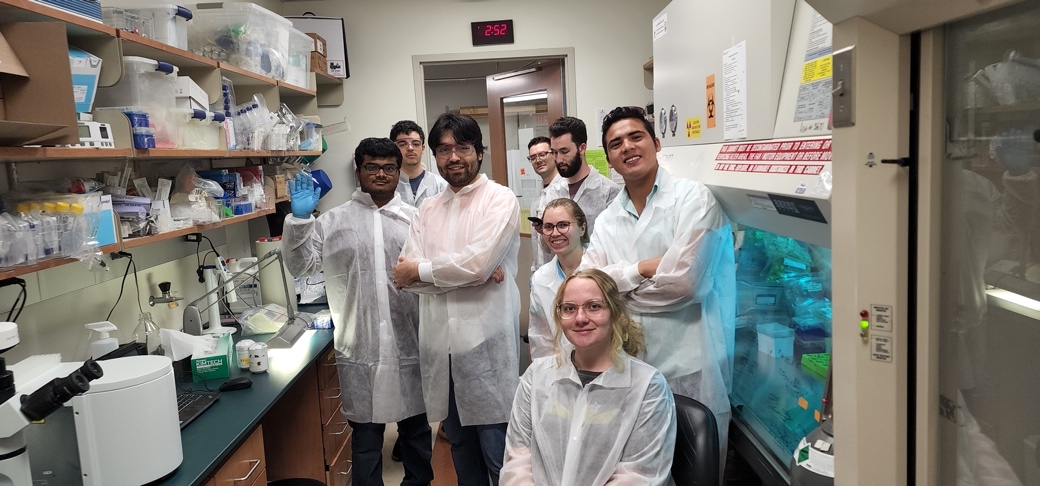
4 / 5
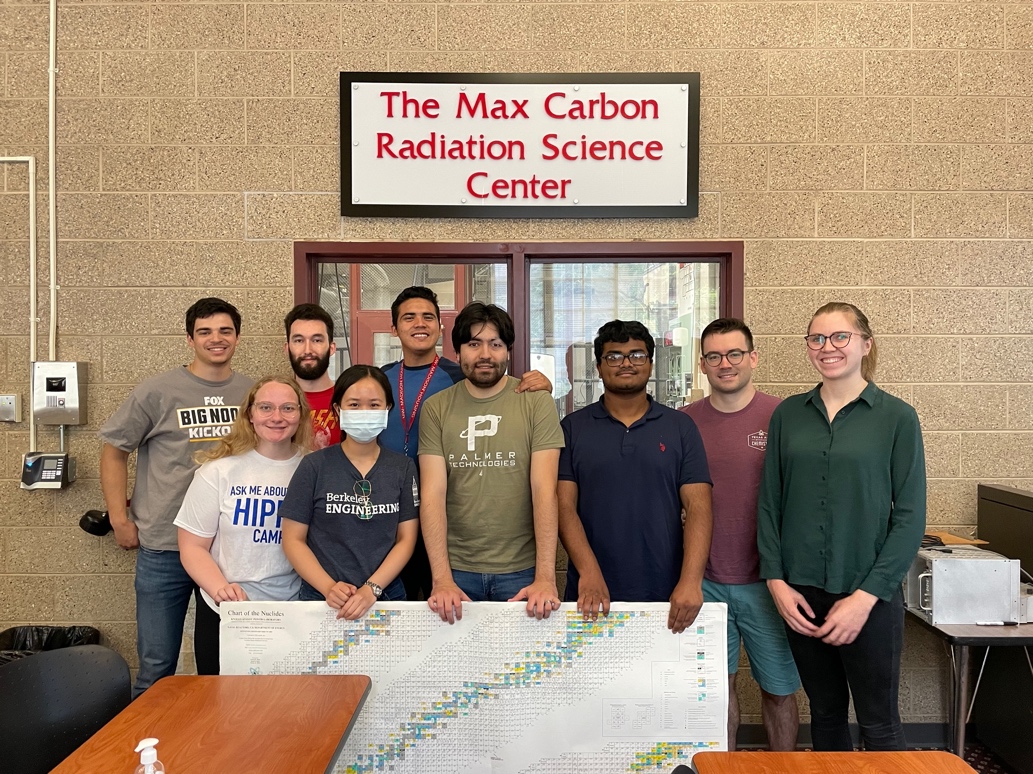
5 / 5
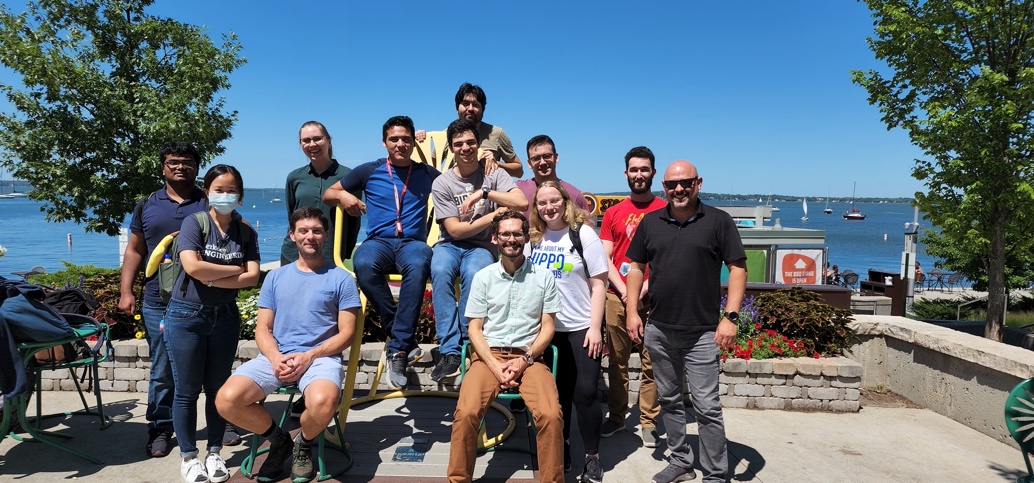
❮
❯
In order to reduce spam, the email addresses above cannot be clicked or easily copied. We apologize for any inconvenience.
